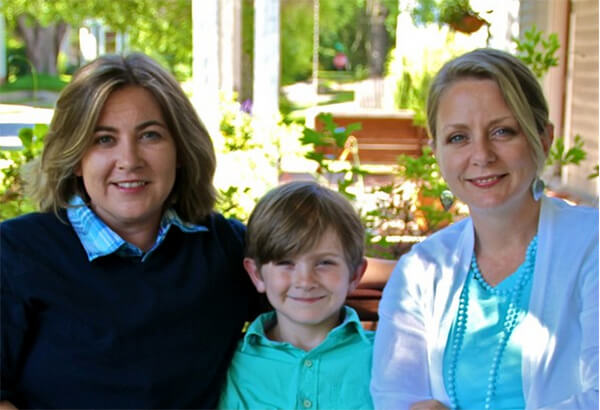ILLUSTRATION BY MICHAEL SHIREY
Alabama’s Mobile County Probate Court is not issuing marriage licenses to anybody, as Judge Don Davis — caught between a federal district court order that names him and a contradictory ruling from the State Supreme Court — tries to figure out exactly what he is supposed to be doing.
On January 26, US District Judge Callie Granade, in a lawsuit brought by a same-sex couple in Mobile County, ruled they were entitled to receive a marriage license because the state’s ban on same-sex marriage violates the 14th Amendment of the US Constitution.
Granade delayed her ruling until February 9 to give the state a chance to seek a stay from a higher court pending its appeal. The defendant in that case, Alabama Attorney General Luther Strange, a Republican, asked the 11th Circuit Court of Appeals and the Supreme Court to stay Granade’s order, but was turned down. Marriages began on February 9, and Strange’s appeal sits essentially ignored at the 11th Circuit, which indicated that it would not take up the case while the appeals of the Sixth Circuit marriage equality cases are before the Supreme Court.
Probate judge makes no gamble he can sort out federalism crisis Alabama Supreme Court is egging on
In Mobile, Davis initially took the position that since he was not a defendant in the marriage case, he would not issue licenses to what by then was an expanded group of victorious plaintiffs. They went back to Granade, who clarified her order to require Davis to issue licenses.
Two organizations opposed to marriage equality filed an emergency petition with the Alabama Supreme Court, purporting to represent the interest of the state, calling on that court to stop the probate judges from issuing same-sex marriage licenses. After seeking responses from the probate judges, on March 3, the Supreme Court issued a decision ordering an end to the issuance of licenses to same-sex couples by the state’s probate judges.
Given the order he had from Granade, however, Davis had submitted a request to be dismissed from the state lawsuit. In its March 3 order, the State Supreme Court directed him to advise it by letter within two days “as to whether he is bound by any existing federal court order regarding the issuance of any marriage license other than the four marriage licenses he was [earlier] ordered to issue.”
After winning additional time to respond, Davis, on March 9, asked the Alabama Supreme Court to excuse him from following its order “out of concern that doing so would require him to violate the federal district court order.”
Two days later, the state high court refused his request, finding that Granade’s order only applied to the plaintiffs in the case she decided.
“Federal jurisprudence contemplates that a federal district court adjudicates the obligations, if any, of a defendant or defendants only with respect to the plaintiff or plaintiffs in the case before the court,” the Alabama court wrote. Since the case had not been brought as a class action on behalf of all those seeking marriage licenses, reasoned the high court, Granade’s order could not require Davis to issue licenses to any other couples.
Noting that Alabama law states that probate judges “may” issue “marriage licenses,” the court wrote, “To the extent he exercises this authority, he must issue those licenses in accordance with the meaning of the term ‘marriage’” as defined in Alabama law.
Davis finds himself in a dilemma, since he is unsure whether the Alabama Supreme Court correctly determined his obligations under Granade’s federal order. So he kept the marriage window closed in his courthouse and went back to her court with an emergency motion to stay her ruling, because he had been “placed in a potential conflict” between her order, the Supreme Court’s order, and a separate administrative order issued prior to the state’s high court ruling by Chief Justice Roy Moore, a fierce critic of Granade’s ruling.
Granade’s response suggested she is sympathetic to Davis’ plight, but otherwise unmoved.
“Although the court would agree that the developments in these same-sex marriage cases has at times seemed dizzying, the court finds that Judge Davis has not shown that a stay is warranted,” she wrote.
Orders are typically stayed when the party seeking one can show they are likely to win on the merits. Davis didn’t even try to make that argument, and Granade also found he had failed to show that denying the stay would cause him “irreparable harm.” Davis pointed to the Alabama Supreme Court’s refusal to exempt him from its order, but Granade responded by making clear he is bound by the federal court’s order.
Meanwhile, the victorious plaintiffs have petitioned the federal district court to expand their case to a class action and on March 18 Granade agreed to consider it. The attorney general argued the case has moved too far along to allow it to be expanded, but the judge noted that, to date, she has only issued a preliminary injunction.
“Although the current Plaintiffs have apparently all received marriage licenses the licenses are of little value if they are not recognized as valid in Alabama,” she wrote. “Under the circumstances, allowing the amendment is not likely to significantly delay resolution of the case for the current parties.”
Granade, however, also acknowledged that the plaintiffs had yet to submit a statement of the basic facts underlying their request for class certification. The plaintiff’s motions had said enough to “allege class claims,” she found, but the court “will not engage in a detailed and rigorous analysis of the class claims until all of the current parties have had the opportunity to oppose or support the motion for class certification.” Granade gave Attorney General Strange until March 23 to respond.
If a statewide plaintiff class is certified, a statewide defendant class of all 67 county probate judges would be a logical extension of the case.
The Alabama Legislature is leaving nothing to chance. Anticipating the eventual arrival of an unambiguous, unchallenged right of same-sex couples to marry there, the House of Representatives on March 12 approved a bill that would excuse ministers and judges from performing any marriage ceremonies to which they have religious objections.
Davis’s marriage window — for the time being, at least — remains closed.


































